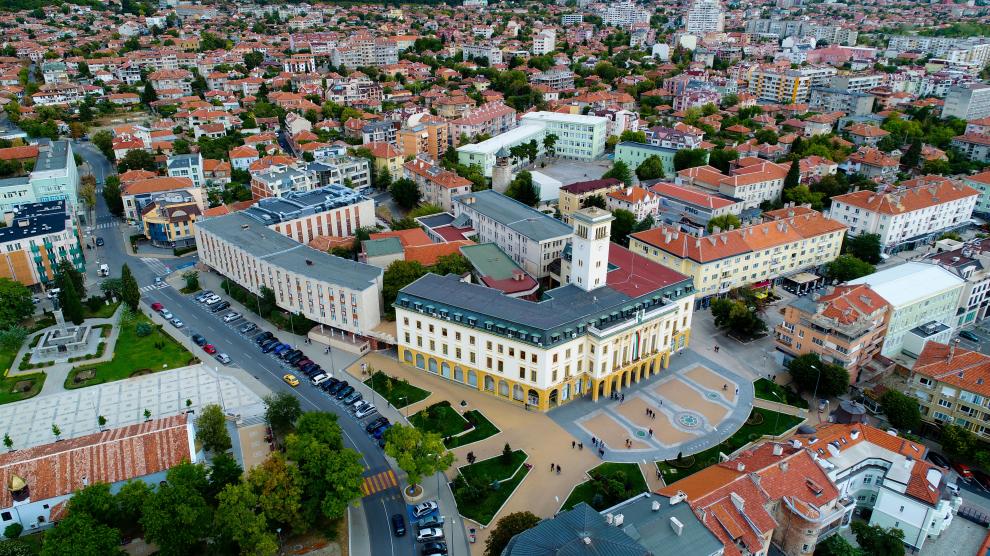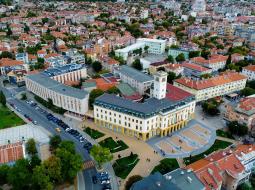Thessaloniki gets ready for its metro launch in November
The underground rapid transit lines have been under construction for almost two decades due to various project delays
 TheMayor.EU logo
TheMayor.EU logo 
Sliven’s history takes us back to the time of the Thracians and then layer upon layer we discover the presence of Romans, Slavs, Greeks, and feel the spirit of the First and Second Bulgarian Kingdoms.
Our ancestors have built the settlement on crossroads and this is one of the great advantages of Sliven, which has played an important role in its past and present development.
Sliven holds a special place in the economic life of Bulgaria. Here the Bulgarian industry has taken its first steps, thanks to favourable geographical and historical circumstances, combined with the entrepreneurial spirit of Dobri Zhelyazkov who, in 1834, set up the first textile factory on the Balkan Peninsula.
Sliven was one of the most important spiritual centers in Bulgaria during the Bulgarian Revival Period. It is the birthplace of the first Bulgarian poet Dobri Chintulov, of the first Bulgarian artist with academic education - Dimitar Dobrovich, of many prominent Bulgarians, whose names are related to the development of Bulgarian and European science and culture.
In the first centuries of the Ottoman rule, Sliven and the Sliven region became the center of the Hajduk movement - one of the most common forms of resistance against the Turkish domination. This gave rise to the glory of Sliven as the City of the 100 Voivodes, the most famous of them being the national heroes Hadji Dimitar and Panayot Hitov.
The city of Sliven is situated at the foot of the southern slopes of the Sliven Mountain (1181 m), which is the prelude to the Eastern Balkan Mountains. With its 112 103 inhabitants as of 2006 the city is the eighth largest in Bulgaria. It combines the functions of an economic and spiritual center with those of a regional and municipal administrative center.
The territory of Sliven municipality is 1366 km2 and covers 49 settlements - the cities of Sliven and Kermen and 47 villages. The winter here is mild, the summer relatively hot. Sliven is characterized by the local wind Bora.
The Municipality of Sliven occupies an ecologically clean area with preserved ecosystem, lack of heavy metal pollution of its soil and waters and negligible air pollution.
Sliven Municipality offers convenient access to southeastern Bulgaria, to luxury Black Sea resorts, and is situated close to major markets (Turkey and Greece), ports and airports. It has a competitive workforce, developed infrastructure and communications, low business taxes and a well-developed education system.
The city boasts traditions in the light and heavy industries (mechanical engineering and electrical engineering); in the textile industry; availability of free industrial terrains at competitive prices; clean environment; mineral springs.

The symbols of Sliven - the Sinite Kamani (Blue Stones) Nature Park, the Old Elm, the monument of Hadji Dimitar, the Eagle - monument of 7th Horse Regiment, the city clock, the factory of Dobri Zhelyazkov, Dobri Chintulov’s songs, impress and inspire visitors. They make sense even for the guests of the city, who are not familiar with Bulgarian history, because they are not frozen bits of history, but part of the atmosphere of the presend-day city.
Sliven Mineral Baths is a balneological resort of national importance. Its water has proven properties in the treatment of gastrointestinal, biliary and liver diseases, and diseases of the musculoskeletal and peripheral nervous systems.
Sliven,
1 Tsar Osvoboditel blvd.